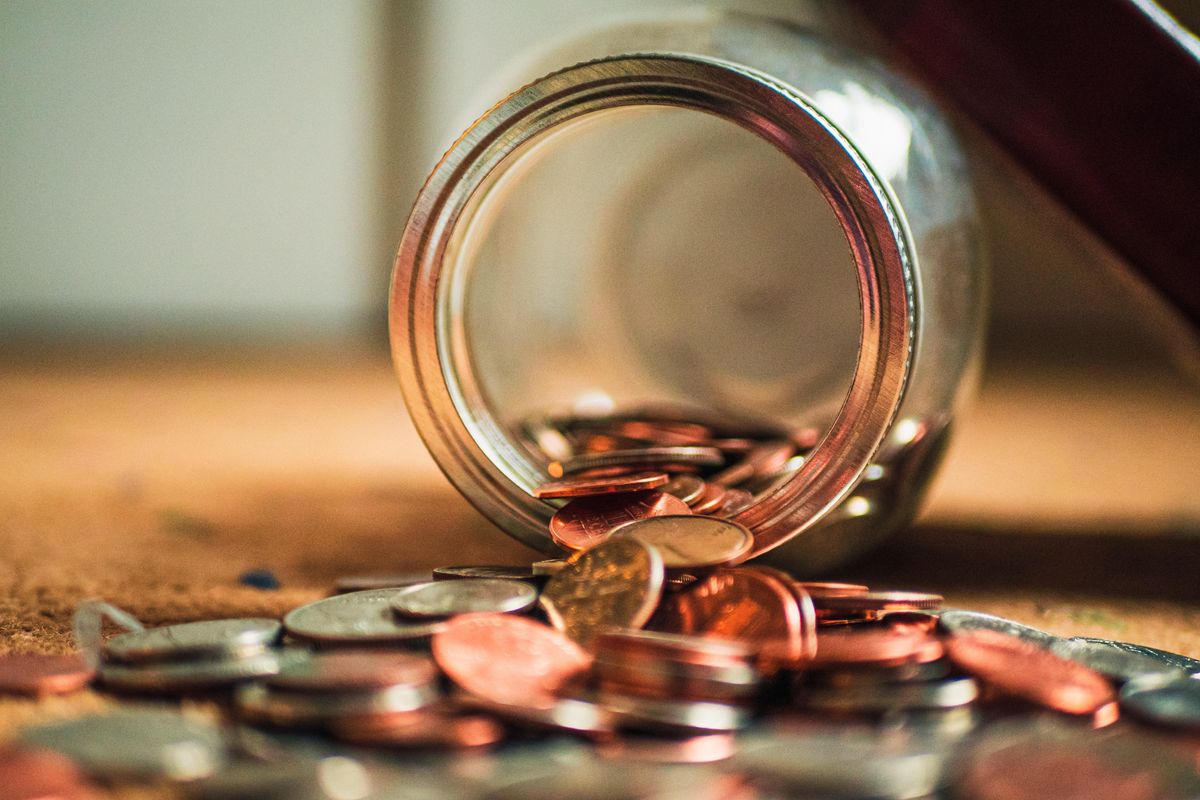How green is your money?
The UK's announcement to launch the world's first sovereign green savings bond has left many people wondering, "how green is my money right now?"

coins
The UK's announcement to launch the world's first sovereign green savings bond has left many people wondering how green is my money right now?
The simple answer is that if you're banking with one of the traditional big banks, your money is likely not very green at all. Since the signing of the Paris Agreement, these banks have increased their fossil fuel funding every year.
The UK's four biggest banks manage over 75 per cent of UK current accounts and 85 per cent of business accounts. By opening an ISA or a savings accounts with a high street bank, your money enables these institutions to continue funding companies that are damaging the planet.
Thanks to the wonderful Sir David Attenborough, many Brits woke up to the problem of plastic pollution a couple of years ago. We can now choose plastic-free packaging, opt for pesticide-free produce or take an electric bus to work.
However, there has been less attention paid to how our finances could help address the climate emergency or, if not placed carefully, how they might make things worse.
Britain's biggest banks have come under fire in recent years for their slow response to the climate emergency and launching 'green products' to address this. But the truth is that the majority of investments made by these institutions continue to fund industries that are not sustainable.

The climate emergency and degradation of the planet's life-support systems are the greatest threats facing humanity. The green economy is growing, but there is a critical gap in financial support for sustainable companies. This is particularly acute for small and medium-sized businesses that legacy banks and service providers are not supporting.
Money, resources, and human ingenuity can solve the climate challenge, but the need for action is urgent. The world needs the financial system to fund the transition to a sustainable economy.
The good news is there is a green banking revolution underway. The planned launch of the NS&I green bonds is more proof that green investing is now a mainstream choice.
However, the new bonds won't launch until the summer of 2021. In the meantime, the end of the tax year is approaching. The question for those serious about ethical and sustainable finance is: How do you assess the plethora of investment opportunities currently claiming eco-credentials?
Here are three questions to ask yourself as you look at your options:
1. What motivates the organisation you're considering placing your investment with? Do they have a clear mission to invest their own and your money as a force for good?
2. What products does the financial institution in question offer? Are they all green and sustainable, or is this just a small proportion of what they do?
3. What kind of companies and industries does the institution invest in? Be careful of greenwashing, look past the front page of their website and simply give them a Google. You might be surprised to see where they are directing funds.
And of course, as with any investment, you should consider your personal financial situation. Some green investments can be included as part of an ISA to make the most of your tax-free savings allowance, but of course, tax benefits are subject to personal tax status.
We must all play our part in tackling the climate emergency, but this doesn't have to include making disruptive lifestyle changes. Investing sustainably can have a bigger environmental impact than using public transport, reducing water use, eating less meat, and reducing air travel combined.
By joining the green banking revolution, we can bring about real change. Change is desperately needed to shift money away from destructive investments and redirect it as a force for good.
You can learn more about the work that we do at Cyan here.


